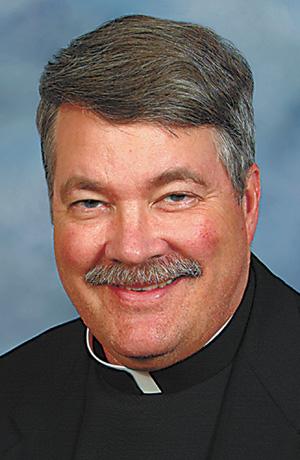
By Fr. Brian Miclot
Within his voluminous writings, the Catholic monk Thomas Merton states, “If you love peace, then hate injustice, hate tyranny, hate greed, hate sin; but hate these things in yourself, not in another. . . . When I pray for peace, I pray to be protected not only from the Reds, but also from the folly and blindness of my own country…”
Merton signals an awareness of what is to be done as an “Easter” people, and how to claim responsibility for such self-awareness to create the goods of the Risen Christ, when they seem to slip away. After all, doesn’t it seem that many of the good things of life often slip away or get stolen with or without us consciously wanting them to go? This is why we celebrate BOTH Good Friday and Easter. God has other ways and means of rising up again from such absence, such burglary.
One Catholic writer describes such a disappearing act. Mary Magdalene is pictured by the tomb on Easter morning. The wraps are there; Jesus is not. After racing to tell her brothers, “Someone stole the body and we don’t know where they have put him,” she seems to collect herself and — ceasing to accuse “them” for the crime — she calls up a more authentic memory of her beloved and is able to go on: “I want to cling to you, [as] graspably human …” she speaks to an absent Jesus. “I want to cling to your body … to your, and my humanity, cling to what we had, our past. …but if I do, then you cannot ascend and I will be left clinging to your former self . . . unable to receive your present spirit” (Father Ron Rolheiser, “The Holy Longing.”)
One lesson for today, Good Friday AND Easter is a lesson of letting some good things go and taking up a new person, a different responsibility, a risen way — whether someone “stole” the former goods to which we cling or they just slipped away.
Recently, a university student offered how his Holy Week several years prior had seemed only like a hell week. His father had felt strangely queasy and had entered a hospital. Soon it became apparent that renal failure was turning to a death — one organ at a time, as if dominoes were falling, as if life were being stolen.
“I started praying, then begging God, bargaining anxiously,” the student said. But then, “I got mad at my dad,” because the student, his mom and others who knew his dad recognized it was his “friend” Johnnie Walker Black (a Scotch whisky) who was stealing his father’s life.
“My dad was hanging out too much with Johnnie Walker who was stealing my dad from me.”
Easter arrived for the university student that year with the good things about his dad slipping away partly because of negligence and partly stolen by Johnnie Walker. But then, like Magdalene pausing at the empty tomb of his father’s soul, the student began to see how resurrection works: the persistent love of his mom was the grace of new life — there all along. He said, “Mom’s love was immense. It hurt her the entire time to keep loving Dad, all along hating the vice; Mom’s love went a long way, farther than I would ever have gone.” His dad has recovered some, now.
At some point we all need such a resurrection. What does it take to stop mourning a good that has slipped away from us? When can the blaming stop and a new person appear, a different responsibility taken up, a Christ-in-me rise?
Merton never stopped taking up responsibility for praying for peace. He did that by letting go of blaming others, owning causes within himself and finding the beginnings of God’s peace everywhere. So should we.
(Fr. Brian Miclot is professor of philosophy at St Ambrose University in Davenport.)








